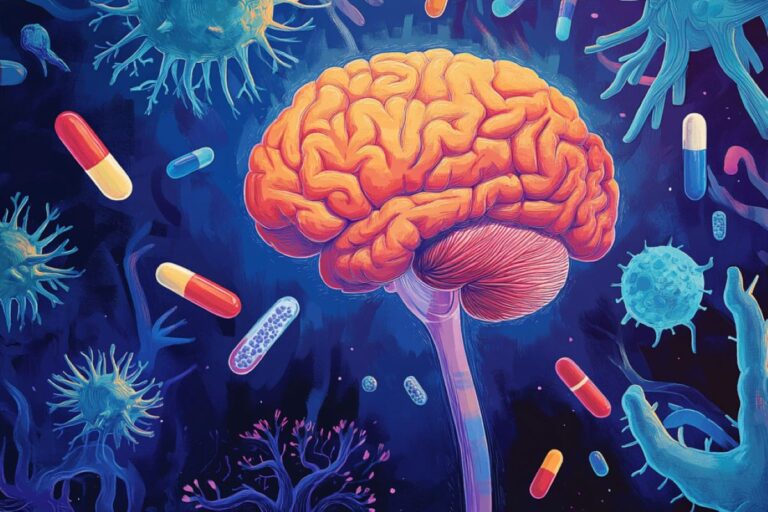Promising New Pill Shows Potential for Dementia Treatment in Mice
Exciting New Pill Shows Promise for Dementia in Mice
With a global population that’s aging at an unprecedented rate, the search for effective treatments for dementia has become more pressing than ever. It’s a condition that affects millions of families, bringing with it challenges not just for those diagnosed, but for caregivers and loved ones too. Recently, researchers have announced some encouraging news: a new pill has shown potential benefits in treating dementia in mice. In this article, we’ll delve into what this means for the future of dementia treatment, the science behind it, and why this discovery is generating buzz.
Understanding Dementia
Before diving into the specifics of this exciting new pill, let’s quickly tackle what dementia is. Dementia isn’t a specific disease but rather an umbrella term that encompasses a variety of cognitive impairments that interfere with daily life. The most common types include Alzheimer’s disease, vascular dementia, and Lewy body dementia. People with dementia often struggle with memory loss, difficulty communicating, and changes in mood or behavior. It’s a slow, often heartbreaking decline, both for the individual and their caregivers.
Now, wouldn’t it be great if we could wave a magic wand and make it all go away? While we don’t have magic wands, scientific advances like this new pill are promising steps forward!
The Pill That Could Change Everything
This new pill, currently undergoing research, is making headlines because it appears to alleviate symptoms of dementia in lab mice. You might wonder, why mice? Well, mice are commonly used in research because they share a lot of genetic, biological, and behavioral similarities with humans. What’s more, their relatively short lifespan allows researchers to observe the effects of treatments over the course of their lives.
How Does it Work?
The pill functions by targeting specific pathways in the brain that are affected by dementia. Think of it like a GPS routing a car around traffic jams. In this case, the pill helps reroute the brain’s pathways that have been disrupted by degenerative processes tied to dementia. By reducing inflammation and promoting neural repair, the pill seems to enhance cognitive function and help restore some normalcy to the lives of the mice involved in the study.
But how does one pill manage to do all that? It sounds like something out of a sci-fi novel, right? The answer lies in a combination of pharmacological ingredients specifically engineered to interact with the brain’s chemistry in a beneficial way. Researchers have discovered that by fine-tuning these ingredients, they can activate certain receptors in the brain that play key roles in memory and learning.
How It Was Tested
In the initial stages of testing, the research team administered the pill to a group of genetically engineered mice that exhibit symptoms similar to those of humans with dementia. They observed these mice over several weeks, closely monitoring changes in their behavior and cognitive abilities.
Curiously enough, the tested mice began to show signs of improved memory function and reduced anxiety—a significant finding since emotional symptoms can be as debilitating as cognitive decline in dementia patients. Can you imagine a mouse saying, “I remember where I left my cheese!” because of this new pill? While it’s a whimsical thought, what’s more important is that this progression suggests hope for real humans facing this tough challenge.
Implications for Humans
While it’s tempting to get carried away with excitement (I mean, who wouldn’t want a quick fix?), it’s crucial to approach this news with a level head. The research is in its early stages, and while it’s promising, there’s still a long road ahead before this pill makes it to your pharmacy shelf. Researchers need to ensure its efficacy and safety in human trials, which involve different complexities than animal testing.
What’s Next in the Research Journey?
Once enough data is gathered from the initial studies, the next steps would involve rigorous clinical trials with human participants. This is where we get to find out if this pill can truly provide the same benefits in humans that it did in mice—no small feat!
Should this new pill advance through the rigorous testing phase, it could join the ranks of other medications designed to manage dementia symptoms. Some hope is found in early positive results, but large-scale studies and long-term effects will ultimately dictate its success—and this is where the patience of the scientific community shines.
Understanding Potential Limitations
Even as we explore the potential of this new pill, we must remain cautious. There are numerous challenges associated with developing any new medication, especially for complex conditions like dementia. Consider some of the following factors:
- Individual Variability: Just as no two people are exactly alike, the effectiveness of the pill may vary greatly among patients due to genetics, lifestyle, and environmental factors.
- Side Effects: All medications come with potential side effects. It’s essential to weigh the benefits against any possible risks involved.
- Complexity of Dementia: Dementia itself is multifaceted. A single pill may not be a one-stop solution but could be part of a broader treatment strategy that includes lifestyle changes and cognitive therapies.
The Role of Lifestyle and Early Intervention
While exciting, the emergence of new treatments reminds us that prevention often trumps medication. Lifestyle factors play a critical role in cognitive health. It’s important to understand that you can influence your brain’s health through:
- Diet: Nourishing your brain with healthy fats, antioxidants, and proper nutrients matters.
- Exercise: Regular physical activity can boost blood flow to the brain and support cognitive function.
- Mental Stimulation: Engage in puzzles, reading, or learning new skills to help keep your mind sharp.
- Social Connections: Stay socially active! Cognitive decline is often seen in individuals who are isolated.
Conclusion
The recent discovery of a new pill showing promise for treating dementia in mice is indeed fantastic news. It illuminates a potential path toward more effective treatments for dementia and can give hope to many affected by this condition. However, as with all scientific advances, the journey is just beginning. We must stay informed and patient as further research unfolds, bearing in mind the importance of a comprehensive approach to cognitive health that includes lifestyle choices.
After all, while this pill could revolutionize treatment, our everyday actions can foster healthier brain function, protecting us through the years. So, whether it’s through innovative science or the choices we make today, the story of dementia treatment is one of hope—and we are witnessing the dawn of new possibilities.
FAQs
1. What are the common symptoms of dementia?
The common symptoms include memory loss, difficulty communicating, confusion, changes in mood or behavior, and challenges with problem-solving.
2. Why are mice used in dementia research?
Mice share many biological similarities with humans, making them an effective and ethical choice for studying complex diseases like dementia.
3. How long will it take for this pill to be available for humans?
It’s still early in the research phase, and it could take several years of testing and clinical trials before it becomes available for human use.
4. What lifestyle changes can help prevent dementia?
Staying physically active, eating a balanced diet, engaging in social activities, and doing brain-stimulating exercises can contribute to cognitive health.
5. Are there already medications available for dementia treatment?
Yes, there are a few medications approved for treating symptoms of dementia, primarily aimed at managing symptoms, rather than curing the disease.







